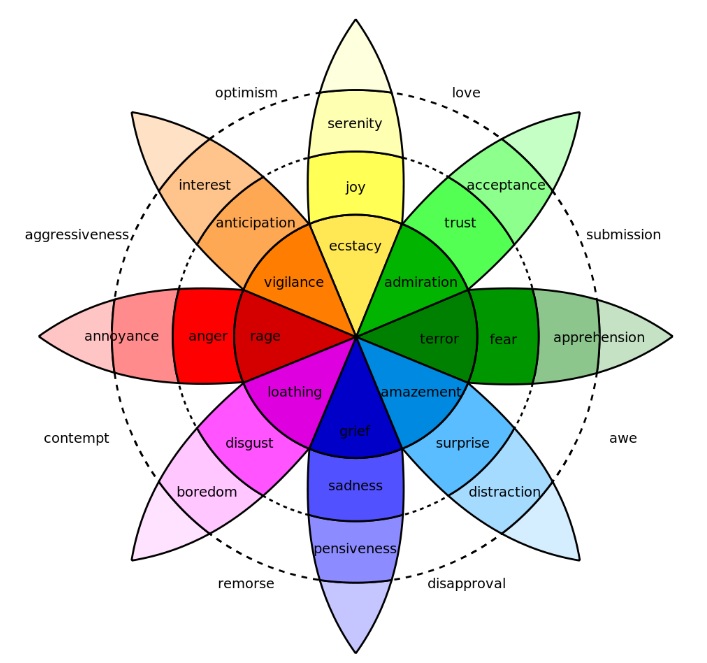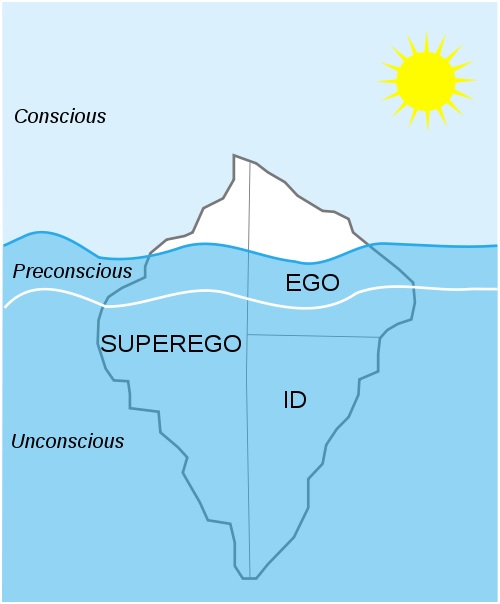第二卷 論概念(Book II: Of Ideas)有三十三章; 第十六章 數目概念(Chapter XVI: Idea of Number); 數目是最自然和最普遍的概念(Number the simplest and most universal idea.)數目可以度量一切能度量的東西。
- 它(數目)的型相由加法組成的(Its modes made by addition.)
- 每一個型相都是明確定義的(Each mode distinct.)
- 因此以數目表達是最精確的(Therefore demonstrations in numbers the most precise.)
- 名稱對數目是必要的(Names necessary to numbers.)約翰·洛克以美洲印第安人為例他們有些部落雖然能推算到二十的數目,但沒有精確的數目概念;他們生活簡單的自給自足,沒有貿易等經濟活動,因此,語言是很貧乏,也就沒有表示一千的名稱。 他再以兒童為例,幼兒可能要到三、四歲才有數目概念,不僅缺少名稱來標記數目,同時心智尚未發展,不能理解。 當文明向前推演,數學的發展,也不可能給每個數目一個特定的名稱,因而發展出以”指數表示法” (exponential expression)代表特定的意義。
- 數目計量一切可計度量的(事物) (Number measures all measureables.)因為數目是由加法組成的,因永遠可以”再加一個”,而產生了永恆和廣大的概念(ideas of Eternity and Immensity),進而成為無限性的概念。
第十七章 論無限性(Chapter XVII: Of Infinity)
- 無限性,它的原始目的,是隸屬於空間、存續和數目(Infinity, in its original intention, attributed to space, duration, and number.) 有限與無限,在我看來,是心靈探求數量的符號和主要隸屬於它們有可以極小分子的增、減組成部分事物的第一敘述:如同先前幾章已經考量過的空間、存續和數目概念。我們只能相信,偉大的上帝,擁有所有的一切而且是所有的一切的源泉,是真實的,是不能理解的無限性:…… (Finite and infinite seem to me to be looked upon by the mind as the modes of quantity, and to be attributed primarily in their first designation only to those things which have parts, and are capable of increase or diminution by the addition or subtraction of any the least part : and such are the ideas of space, duration, and number, which we have considered in the foregoing chapters. It is true, that we cannot but be assured, that the great God, of whom and from whom are all things, is incomprehensibly infinite :……) 因此,約翰·洛克論證有限的概念容易獲得(The idea of finite easily got.),那麼,我們如何得到無限性的概念?(How we come by the idea of infinity.) 他的回答:就類似他在前一章對永存(Eternity.)概念的論證---就是無止境增、減的概念。
- 我們無界限空間的概念(Our idea of space boundless.)前幾章”論空間概念的簡單符號” 約翰·洛克辯證過虛空的空間(void space)的存在,因而推導出是這個概念的來源;以同樣的累加概念推導存續(概念)也是如此(And so of duration.),產生永存(Eternity.)概念。
- 空間的無限性和無限性空間的差異(Difference between infinity of space, and space infinite.) ……因此,我們無限性概念的存在,我認為,是一個無止境增長的概念,但心靈中有任何數量的概念,那個時候的概念是有限的(因為它(無限性)將會多大,它(無限性)不能大過現存),-將無限性加上它(數量的概念),那是對成長的主體調整一個靜止的度量;因此,我認為它(無限性)不是一個無意義難以掌握的細節,我要說,我們應當仔細分別空間的無限性和無限性空間的概念。 首先,只是心靈假設無止境增長,累加空間的重複概念;不過在心靈中真實的有無限空間概念,那無異就假設心靈已經超越,而且真實的俱備那些空間的重複概念看法---一個無止境重複性完全不能描述它(無限空間概念);這裡就有一個明顯的矛盾。(…… For, as our idea of infinity being, as I think, an endless growing idea, but the idea of any quantity the mind has, being at that time terminated in that idea, (for be it as great as it will, it can be no greater than it is,) – to join infinity to it, is to adjust a standing measure to a growing bulk ; and therefore I think it is not an insignificant subtilty, if I say, that we are carefully to distinguish between the idea of the infinity of space, and the idea of a space infinite. The first is nothing but a supposed endless progression of the mind, over what repeated ideas of space it pleases ; but to have actually in the mind the idea of a space infinite, is to suppose the mind already passed over, and actually to have a view of all those repeated ideas of space which an endless repetition can never totally represent to it ; which carries in it a plain contradiction.)注意: 喬丹諾·布魯諾(Giordano Bruno)主張無限宇宙論(On the Infinite Universe and Worlds, 1584)被視為異端燒死的。 約翰·洛克前面許多的論證基礎都建立在聖經上, 前一章有論述舊約創世記(the Book of Genesis),聖經中的”世界”在時間上有開端,在空間上也就必然有”端點”----當然就會有界限,”真實”的空間在”邏輯”上就不能是無限的。 這個問題十八世紀的伊曼努爾·康德(Immanuel Kant, 1724年4月22日~1804年2月12日)在他的純粹理性批判(the Critique of Pure Reason)中以二律背反(Antinomy)批駁了有限性及無限性命題的矛盾。 這裡就只節錄反駁無限空間觀點的結論。
- 我們如何想像空間的無限性(How we conceive the infinity of space.) 空間的無限性只在”想像中”,不是我們經驗能感之的”真實存在”,那麼,我們的”想像觀念”又由那裡來的? 無限分割性(Infinite divisibility.)任何物體可以無限的分割,這就是空間的無限性(the infinity of space)概念的來源!!
- 不明確的無限性概念(No positive idea of infinity.)有限的和有限的相加,就必然還是有限的,不會產生無限性概念;為什麼我們不能有明確的無限數量概念(How we cannot have a positive idea of infinity in quantity)以終點的否定(the negation of an end)做為無限概念的論據;以沒有起點的存續(of a duration without a beginning)作為永久概念(the idea of eternal)的論據;約翰·洛克認為這依然只是個否定的概念(negative idea)!!
- 我們無限的概念中,什麼是明確的,什麼是否定的, (What is positive, what negative, in our idea of infinite.)約翰·洛克以深不可測的海洋舉例,我們任何探索都會有個”界限”,對”界限”以外的東西,我們對無限的存續沒有明確的概念(We have no positive idea of an infinite duration.),約翰·洛克在論述中也承認”……不過這個(永久存在)起點的否定,(這個)存在只是對明確的事物否定,幾乎不能讓我產生明確的無限性概念;任何時候我在努力發揮我思想的力量(思考無限時),我承認我自己失去了思緒的脈絡,因而我發現我不能獲得它(無限性)的清晰內涵。….”(……But this negation of a beginning, being but the negation of a positive thing, scarce gives me a positive idea of infinity ; which, whenever I endeavour to extend my thoughts to, I confess myself at a loss, and I find I cannot attain any clear comprehension of it….),因此他的結論-----永久存在的概念是不全面的(No complete idea of eternal being.)。第十八章 其它的簡單符號(Chapter XVIII: Other Simple Modes) 約翰·洛克例舉的有 : 其他有關感覺的簡單概念的簡單型相(Other simple modes of simple ideas of sensation.)包括 : 運動的簡單型相(Simple modes of motion.); 聲音的型相(Modes of sounds.); 顏色的型相(Modes of colours.); 味覺的型相(Modes of tastes.);一些沒有名字的簡單型相(Some simple modes have no names.)等等,有興趣的,就請自行閱讀約翰·洛克敘述的細節。
第十九章 論思想的型相(Chapter XIX: Of the Modes of Thinking)他例舉的有 :
- 感覺、記憶、思維等,思想的型相(Sensation, remembrance, contemplation, &c., modes of thinking.)----外部物體經由感官進入心靈都必須依賴這些功能;
- 思想的其他型相(Other modes of thinking.)---- 推理,判斷、意欲、知識等都是由反省得來的概念;
- 思想時各種專注的程度(The various degrees of attention in thinking.)----冥想(reverie)、專注、做夢或甚至不被查覺的念頭等,都是思想活動程度的差異;
- 因此,思想或者只是靈魂的活動,而不是它的本質(Hence it is probable that thinking is the action, not the essence of the soul.)----我們在暴風雨中睡夢時對外界的閃電、雷聲全然沒有感覺,是因為靈魂沒有活動!!
第二十章 論快樂和痛苦的型相(Chapter XX: Of Modes of Pleasure and Pain)所討論快樂和痛苦是日後心理學(psychology)的一個”初始”的起步,約翰·洛克使用的詞是” passion”,現今使用”情緒”(emotion),應是更全面。

各種”情緒”(emotion)解析示意圖
現今心理學的發展對各種”情緒”(emotion)的探討要比約翰·洛克所理解的深刻的多,細節就略過不敘述了。
- 快樂和痛苦,是簡單概念(Pleasure and pain, simple ideas.) 在一切由感覺和反省得到的簡單概念中,痛苦和快樂是兩個非常重要的概念。(Amongst the simple ideas which we receive both from sensation and reflection, pain and pleasure are two very considerable ones.) 這些,像其他簡單的概念,不能被描述,而且它們的名稱也不能定義的; 認識他們的方法是,作為感官的簡單概念,只能透過經驗。(…… These, like other simple ideas, cannot be described, nor their names defined ; the way of knowing them is, as of the simple ideas of the senses, only by experience.)
- 善和惡,是甚麼(Good and evil, what.) 我們所謂的善,就是有助於我們心靈引起或增加快樂或減少痛苦的東西;不然能鞏固或維護我們擁有任何其他的善,或摒棄任何的惡。(That we call good, which is apt to cause or increase pleasure, or diminish pain in us ; or else to procure or preserve us the possession of any other good or absence of any evil.)能達成反面效果的就是惡。
- 經由善和惡啟動我們的熱情 (Our passions moved by good and evil.)約翰·洛克將不僅將善和惡與快樂和痛苦連結在一起,而且還是啟動我們的熱情的基本因素。與快樂和痛苦相關的型相有 : 愛(Love.);憎恨(Hatred.);渴望(Desire.);喜悅(Joy.);悲戚(Sorrow.);希望(Hope.);敬畏(Fear.);絕望(Despair.);忿怒(Anger.);羡慕(Envy.)
- 什麼熱情是所有人類具有的(What passions all men have.)約翰·洛克認為除了忿怒(Anger.)和羡慕(Envy.)這兩種熱情外,其他的都是人類所共有的----約翰·洛克的敘述請自行閱讀。
- 快樂和痛苦,是什麼(Pleasure and pain, what.)關於快樂和痛苦、愉快和不安,我一貫堅持認為(如我前邊所暗示的)不僅意味著身體的痛苦和快樂,而且是我們愉快或不安的感覺---不論是由任何愉快或不能接受的感覺或反省(概念)所引起的。(By pleasure and pain, delight and uneasiness, I must all along be understood (as I have above intimated) to mean not only bodily pain and pleasure, but whatsoever delight or uneasiness is felt by us, whether arising from any grateful or unacceptable sensation or reflection.) 這些例證就指示出,我們的熱情概念是經由感覺和反省獲得的(These instances to show how our ideas of the passions are got from sensation and reflection.)
- 約翰·洛克特別提出羞耻(Shame.)的”情緒”,這是一個很複雜的”心理及生理反應”;這應是各種”我”---“本我”(Id);”自我”(ego);”超自我”(super-ego)---之間的衝突,這是一個值得探討的題目!!

本我”(Id);”自我”(ego);”超自我”(super-ego)相互間關係示意圖

Free counters

|


 字體:小 中 大
字體:小 中 大










